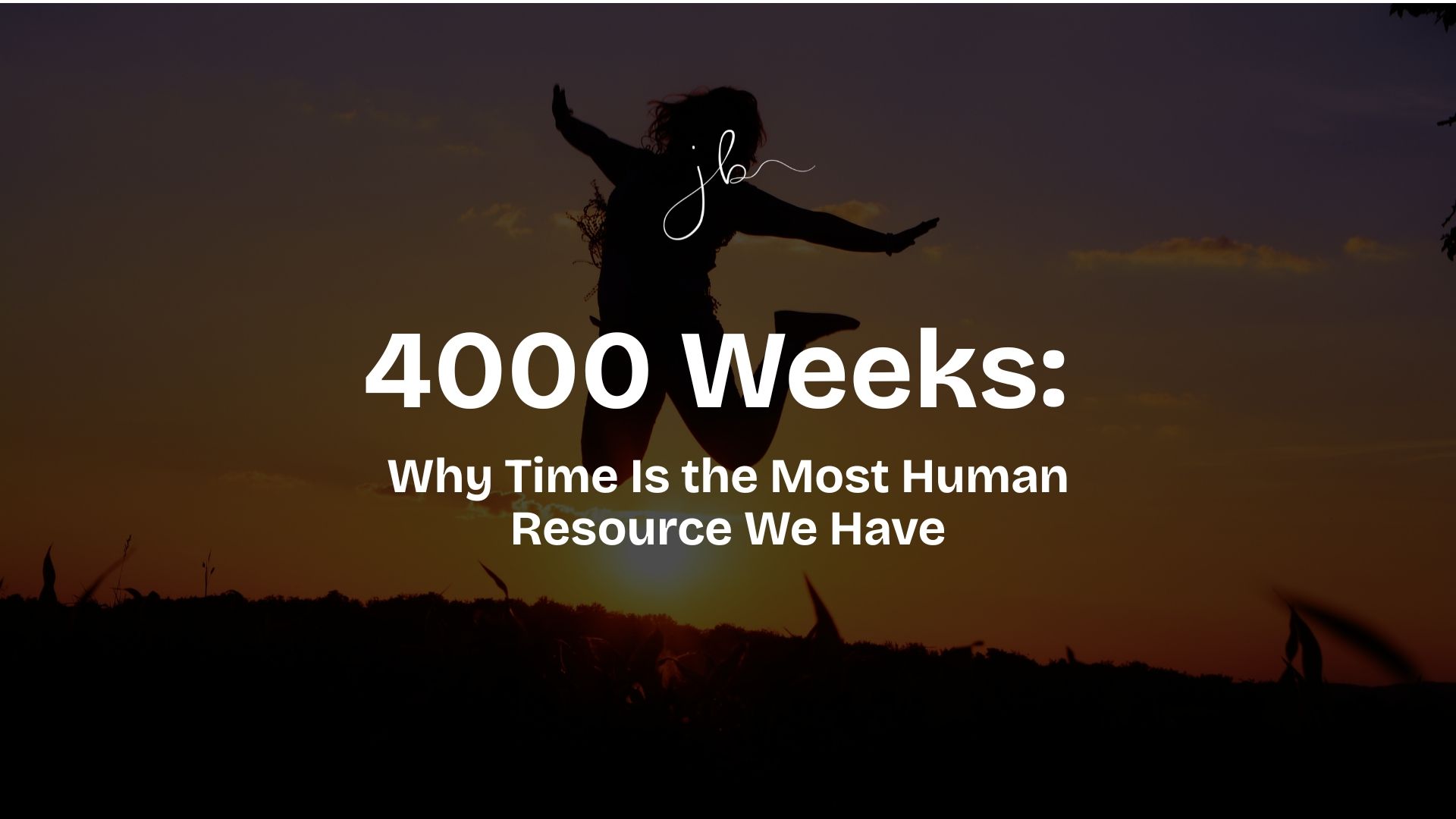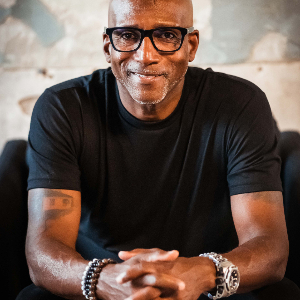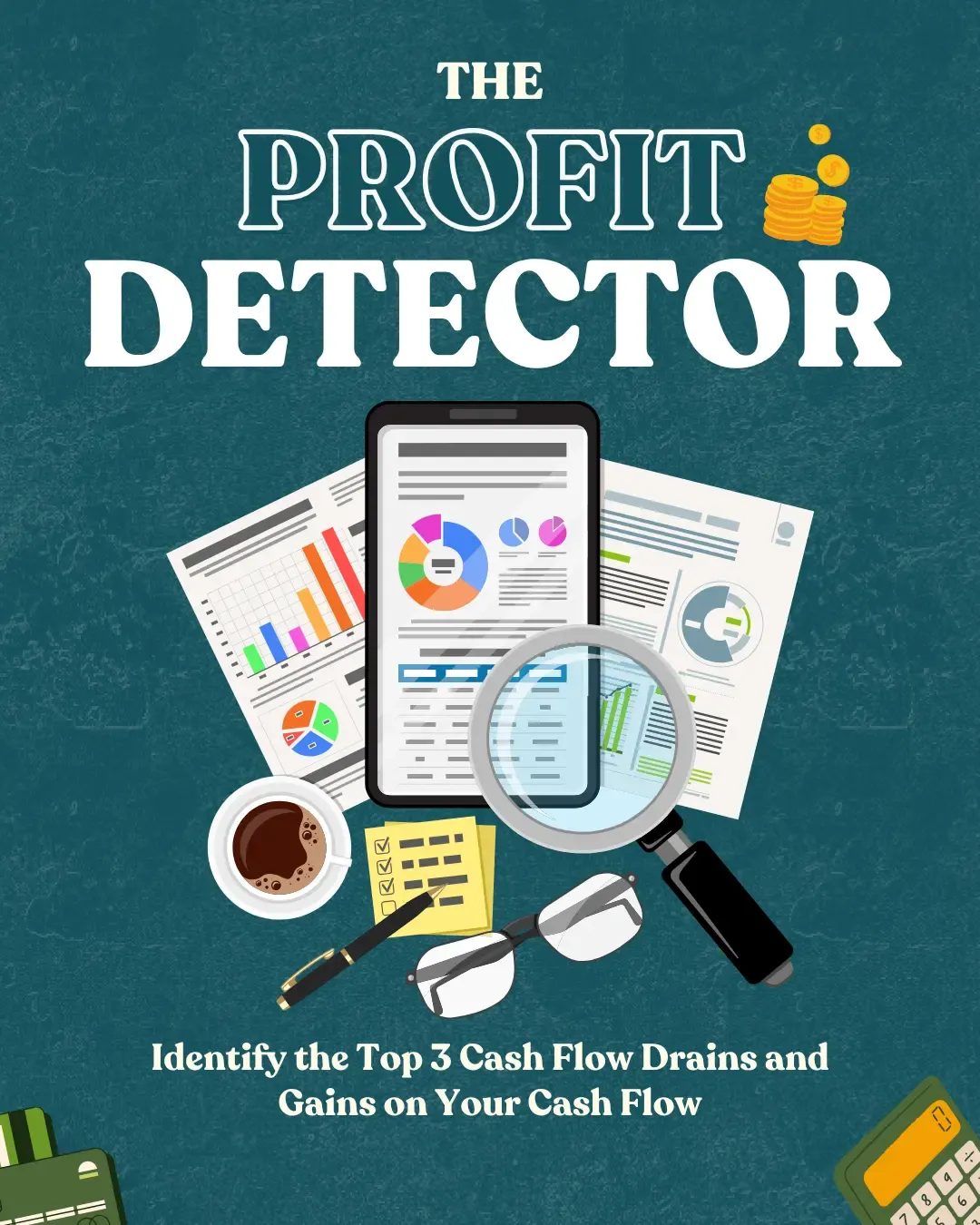4000 Weeks: Why Time Is the Most Human Resource We Have

The average human lifespan is 4,000 weeks.
That’s it.
I had to sit with that number momentarily when I first heard it. At 59, I’ve already lived through most of those weeks. And while I’m not afraid of aging, that number shifted something in me. It reminded me: time isn’t a guarantee. It’s a gift.
The Illusion of Control
We live in a world obsessed with productivity. Open your feed, and you’ll find endless advice on how to “hack your schedule,” “maximize every minute,” and “crush your to-do list.”
But let’s get real for a second. Father Time? He’s undefeated.
We try to act like time is something we can conquer, but the truth is, it’s something we inhabit. It’s not a battle to win, it’s a space to live in.
This shift in thinking was sparked by a book I read: 4000 Weeks: Time Management for Mortals by Oliver Burkeman. Unlike most time management books, this isn’t filled with hacks or hustle tips. It’s a reality check, a reminder that we’re finite beings with finite time. Burkeman doesn’t tell you how to do more. He invites you to do less and make it count.
How We Lost Our Way
Long before we had Google Calendars and smartwatches, humans followed natural rhythms. We rose with the sun, planted with the stars, and harvested with the seasons. Time was circular and communal. It wasn’t measured; it was experienced.
Then came the Industrial Revolution. It didn’t just change how we worked; it changed how we lived. The introduction of mechanical clocks, shift work, and deadlines turned time into something to be monetized. We went from living in time to trying to control it.
That legacy is still with us. Look at your calendar. I bet it’s sliced into neat 30-minute blocks, packed with Zoom calls, reminders, and tasks. We’ve turned time into a productivity puzzle, and most of us are quietly losing the game.
The Efficiency Trap
One of Burkeman’s most powerful ideas is the efficiency trap. It’s the idea that the more efficient you become, the more people expect from you.
Answer emails faster? You’ll get more emails. Clear your schedule? You’ll fill it again.
I used to be obsessed with inbox zero. Every unread message felt like an itch I needed to scratch. But the faster I replied, the more messages poured in. I wasn’t winning; I was just stuck in a loop.
Productivity doesn’t lead to freedom. It leads to more demands, more pressure, and eventually, burnout.
I lived that reality. As a former corporate controller, my calendar was a battleground of SEC deadlines and earnings calls. I had calendars and checklists for my checklists. On the surface, I was living a “limitless” life. But I was exhausted, and my time felt less like a resource and more like a cage.
What If We Embraced Our Limits?
Here’s the radical idea Burkeman offers: What if our limitations aren’t a flaw, but a feature?
What if our value comes not from how much we can squeeze into each week but from what we choose to prioritize?
Think about it: Nothing would feel urgent if you had unlimited time. You could always start tomorrow. But because our time is limited, it becomes sacred. You can’t do it all. You weren’t meant to. The beauty of your life is in the choices you make. And every “yes” to one thing means a “no” to something else. That’s not a loss, it’s clarity.
Real Freedom Looks Different
Burkeman writes that absolute freedom isn’t about endless options. It’s about committing to the things that matter most.
One of those commitments for me is this podcast: Just Human. It’s not perfectly scripted or optimized for algorithms, but it’s aligned with my values. It’s where I show up fully, flaws, stumbles, soul, etc.
Could I be learning to play the piano instead? Sure. And I’d love that. But I’m focusing on what feeds my spirit right now, my marriage, business, and voice. You can’t chase every dream at once. But you can show up deeply for the ones that count.
Try This Instead…
Burkeman offers a few uncomfortable, but freeing, ideas for how to reclaim your time:
- Let things fall through the cracks. Not everything deserves your energy. That’s not neglect. That’s discernment.
- Put what matters on your calendar first, not as a filler or an afterthought. Protect it like you would a meeting with your CEO.
- Stop waiting for the perfect time. It doesn’t exist. “Done is better than perfect” has become one of my mantras.
- Slow down. Rushing robs you of the actual moments that make life meaningful.
- Accept discomfort. Uncertainty, imperfection, and even boredom are all part of being human.
You’re Not a Machine
This is what I want you to remember:
You are not a machine. You don’t need to optimize every moment. You don’t have to master every app. You don’t need to answer every email.
You are human. You’re allowed to rest. You’re allowed to say no. You can live a whole life, not just full of things to do.
You’ve got 4,000 weeks, give or take. So don’t spend them chasing a zero inbox. Spend them chasing what matters.
What’s one thing you’ve been putting off because you’re afraid to close other doors?
Drop it in the comments below, and let’s talk about what it means to live on purpose.
Free quiz: alignedimpact.scoreapp.com
SUBSCRIBE FOR WEEKLY INSIGHTS
Don't miss out on updates, new podcast episodes, and valuable insights from Jay. Subscribe and join his newsletter community for thought-provoking discussions and tips on fostering a human-centric workplace culture.
We hate SPAM. We will never sell your information, for any reason.



